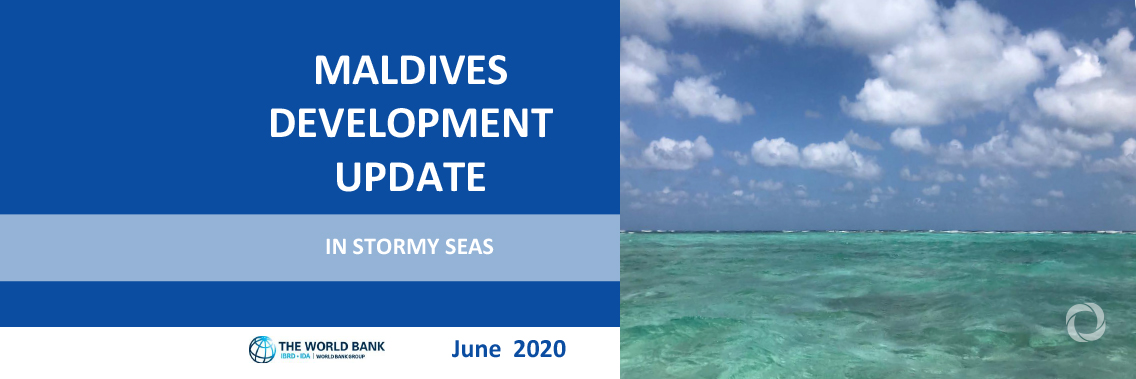Seizing green energy opportunities through increased investments in renewables can contribute to post COVID-19 economic recovery and create more jobs in the Maldives, says the latest World Bank Maldives Development Update: In Stormy Seas.
The Update, which takes an in-depth look at the country’s economy and future outlook, highlights the high toll that the pandemic has inflicted on the country’s economy. As a result of the shutdown of tourism, the Maldives main economic driver, growth is projected to contract by between 13 and 17.5 percent in 2020 before rebounding to between 7.9 and 8.5 percent in 2021 as tourism gradually recovers.
To buffer the impact of the crisis, the government has introduced a series of fiscal and monetary measures. The relief package includes loan moratoria and emergency financing for businesses, as well as income support for individuals and discounts on utility bills for poor and vulnerable households. However, despite large cuts to both recurrent and capital spending, the revenue shortfall resulting from the crisis is expected to elevate the fiscal deficit to at least 14.5 percent of GDP.
“The Maldives has enjoyed high growth rates in the past few years. But the shocks stemming from the COVID-19 pandemic have upended the Maldives development trajectory and severely affected the Maldivian people,” said Idah Z. Pswarayi-Riddihough, World Bank Country Director for Maldives, Nepal, and Sri Lanka. “Focusing on renewable energy can prove to be a good investment at this time – creating jobs and improving the country’s ability to rebound stronger when opportunities open up.”
The report includes a special focus section on the importance of scaling up renewable energy generation in the Maldives. Maldivians have enjoyed universal access to electricity since 2008, but heavy reliance on imported diesel and isolated island-based grids drive up the costs of electricity generation. Even with subsidies, which add to the government’s fiscal burden, electricity tariffs are among the highest in the region – which puts an additional burden on households.
To alleviate these challenges, the report recommends facilitating more private sector investments in renewable energy, especially in solar photovoltaic technology. While the required upfront investments are high, investing in renewables can help the Maldives to lower its cost of electricity service, fuel import bill, and subsidy expenditure, reduce carbon emissions, and create new jobs.
The Maldives Development Update is a World Bank publication that discusses the country’s recent macroeconomic developments and outlook, as well as relevant development challenges.
Original source: World Bank
Published on 15 June 2020

